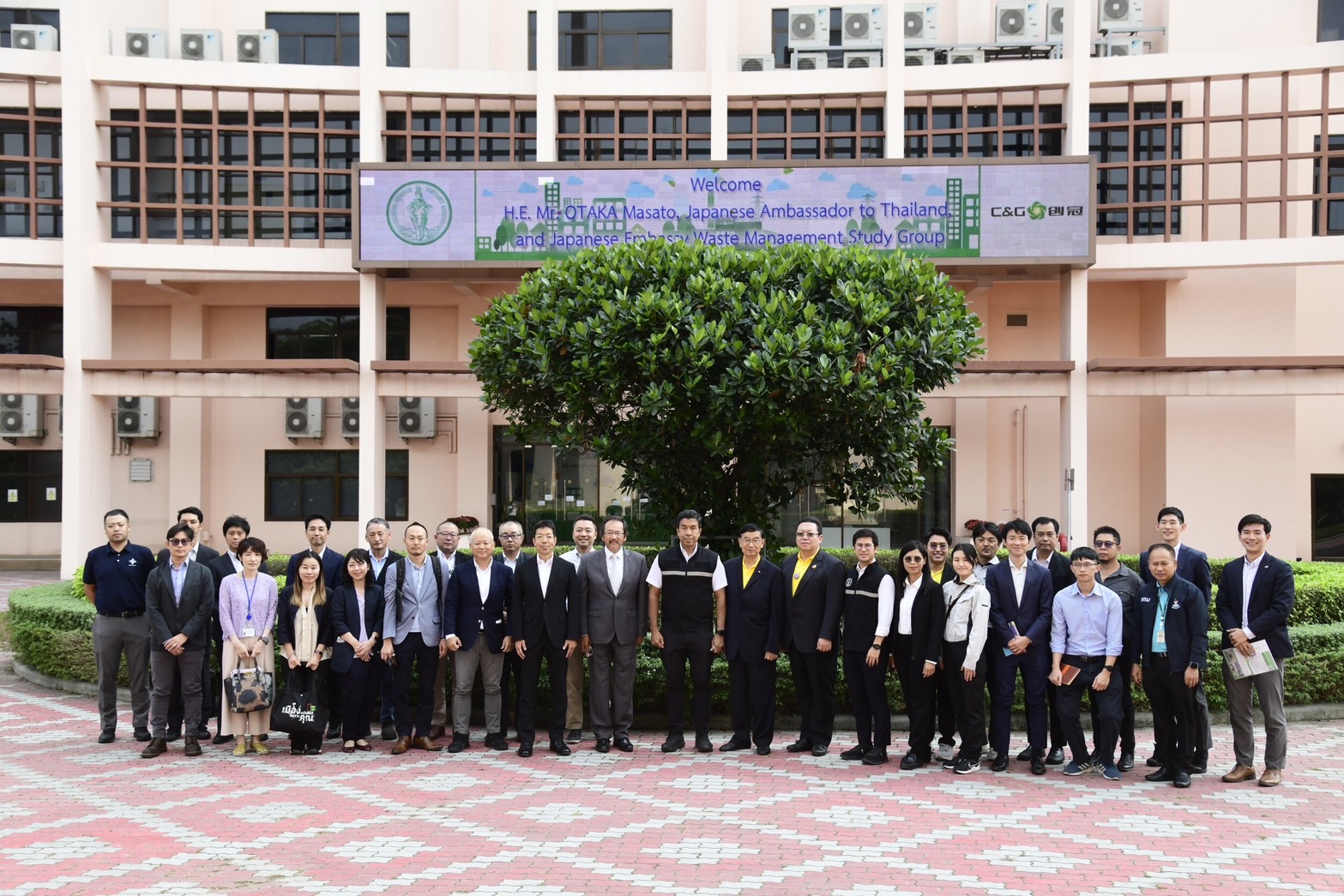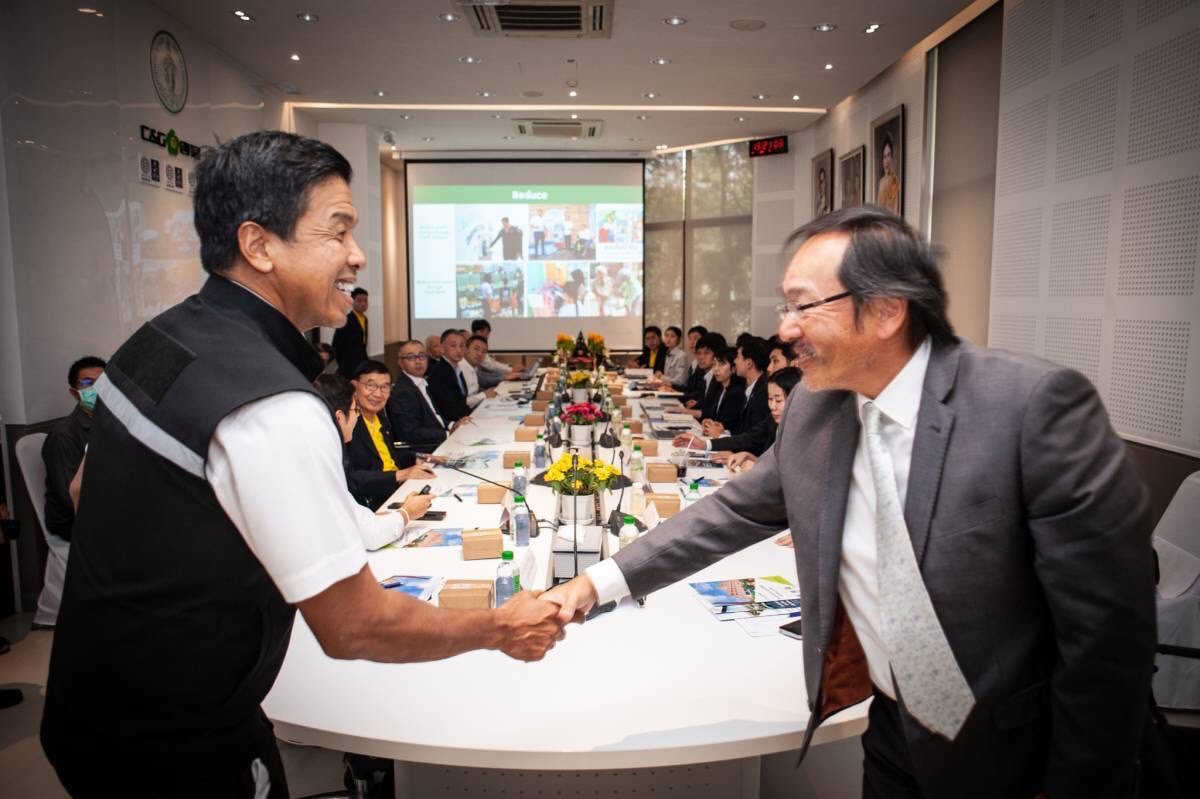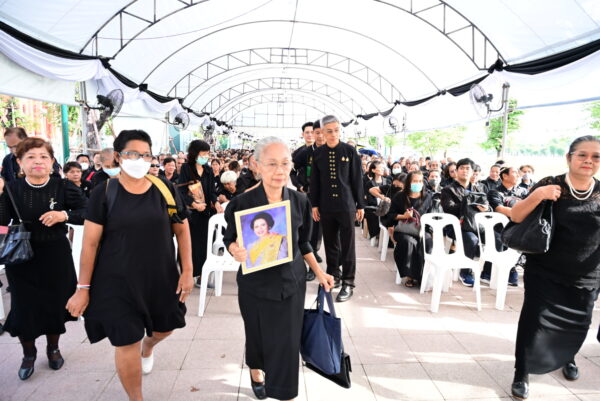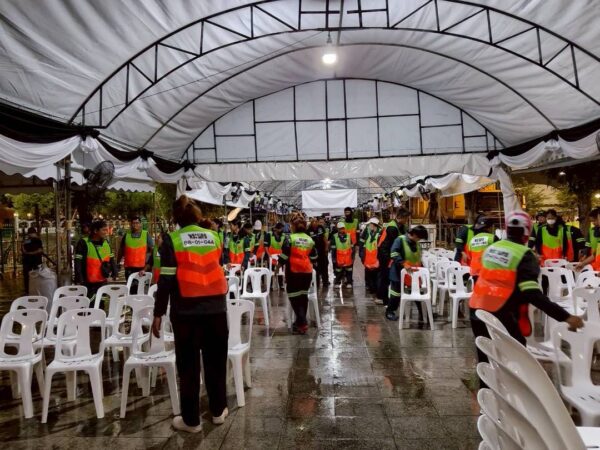January 20, 2025 – Bangkok Governor Mr. Chadchart Sittipunt, along with Mr. Pornprom Wikitset, Advisor to the Governor, and the first Chief Sustainability Officer of the BMA, welcomed a delegation from the Embassy of Japan in Thailand to the Nong Khaem Waste Management Center in Nong Khaem District. The visit, led by H.E. Mr. OTAKA Masato, the Japanese Ambassador to Thailand, aimed to exchange insights on waste management practices. The delegation included representatives from the Japan International Cooperation Agency (JICA), embassy officials, and waste management specialists, totaling 24 participants.

The meeting opened with a discussion on waste management practices in Tokyo and other major Japanese cities, focusing on waste separation and collection systems. Governor Chadchart highlighted that Bangkok generates approximately 9,000–10,000 tons of waste daily and shared updates on the city’s efforts to modernize its waste management systems. The Japanese representatives explained that Tokyo residents diligently sort waste into categories such as recyclables, food waste, and general waste, with garbage trucks collecting waste twice a week. This meticulous approach has significantly reduced the city’s environmental impact.
Advisor Pornprom and Miss Woranuch Suaykakaow, Deputy Director General of Environment Department, elaborated on Bangkok’s waste-to-energy projects. These include the incineration-based electricity generation initiatives at the Nong Khaem and On Nut Waste Management Centers. They also discussed other innovative solutions such as producing fuel from waste, composting organic waste into fertilizer, and converting waste into biogas for electricity generation.
After the discussions, the Japanese delegation toured the facilities at Nong Khaem, including the Black Soldier Fly (BSF) facility. This innovative system uses larvae to process organic waste safely, efficiently, and odorlessly. The eco-friendly process is harmless to the environment and offers a practical waste solution for households.
A highlight of the visit was the incineration-based electricity generation project at the Nong Khaem Waste Management Center. Designed to process at least 1,000 tons of waste daily, the facility is set to begin operations in 2026. It will convert municipal solid waste into electricity using advanced incineration technology. Waste is stored in sealed collection pits for 3–5 days to reduce moisture content to 35%. From there, a crane feeds the waste into a Stoker Type incinerator, where it is burned at a controlled temperature of 850–1,100 degrees Celsius. The heat generated boils water to produce high-pressure steam, which drives a turbine connected to a generator, producing up to 30 megawatts of electricity.
The facility will operate under a 20-year waste management contract, positioning Bangkok as a regional waste-to-energy technology leader.
This knowledge-sharing visit underscored the strong partnership between Thailand and Japan in addressing environmental challenges. Both parties emphasized the importance of integrating innovative technologies and public participation to create sustainable waste management systems. The collaboration serves as a model for other cities aiming to balance urban development with environmental stewardship.
waste # knowledgesharing #environmental #energytechnology




